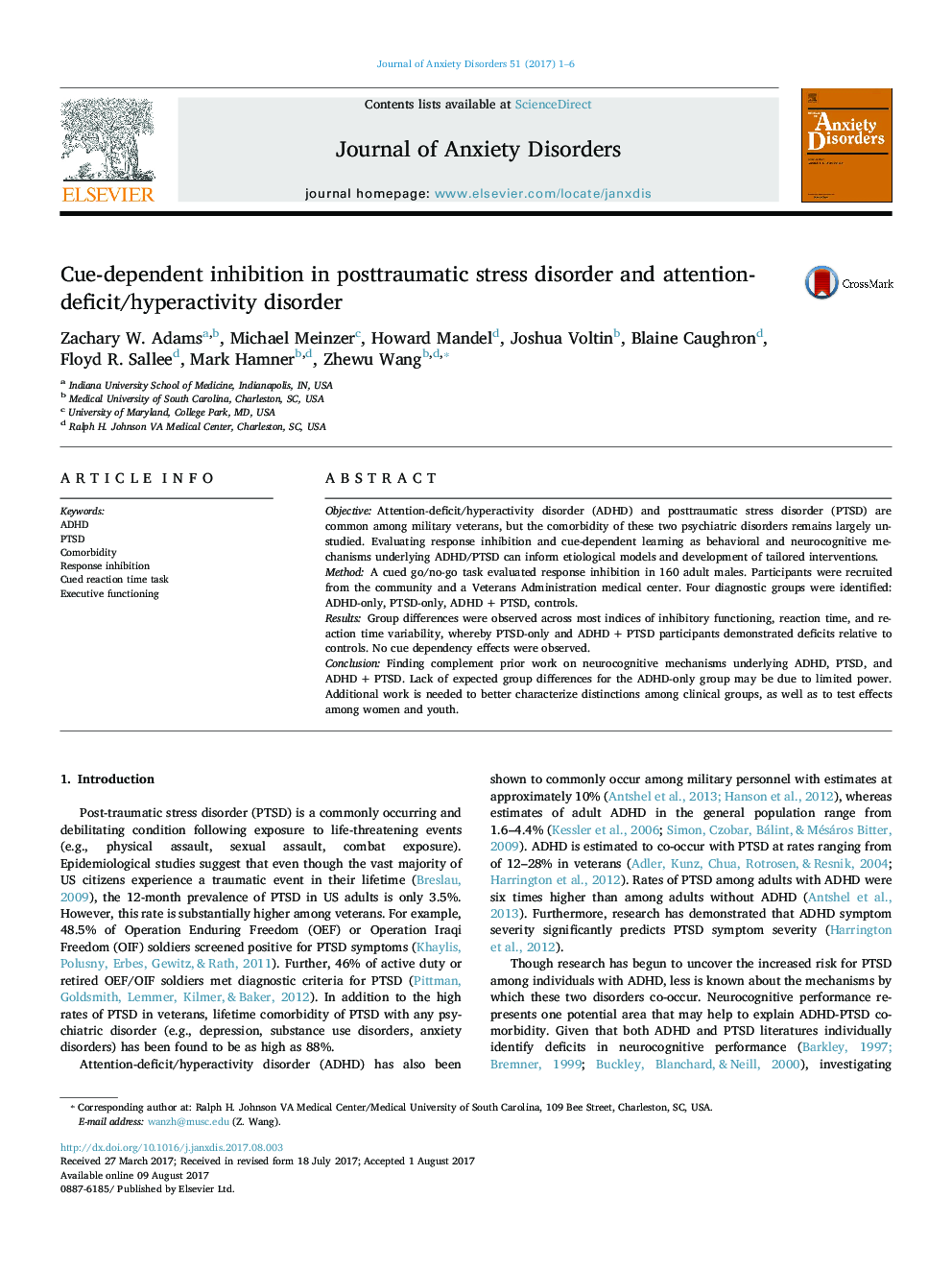| Article ID | Journal | Published Year | Pages | File Type |
|---|---|---|---|---|
| 5038847 | Journal of Anxiety Disorders | 2017 | 6 Pages |
â¢Response inhibition was compared in 161 adult men with PTSD and/or ADHD and controls.â¢PTSD and ADHD + PTSD were linked to impaired response execution and inhibition.â¢PTSD and ADHD + PTSD showed slower, more variable reaction time relative to controls.â¢No cue dependency differences were observed by PTSD or ADHD diagnosis.
ObjectiveAttention-deficit/hyperactivity disorder (ADHD) and posttraumatic stress disorder (PTSD) are common among military veterans, but the comorbidity of these two psychiatric disorders remains largely unstudied. Evaluating response inhibition and cue-dependent learning as behavioral and neurocognitive mechanisms underlying ADHD/PTSD can inform etiological models and development of tailored interventions.MethodA cued go/no-go task evaluated response inhibition in 160 adult males. Participants were recruited from the community and a Veterans Administration medical center. Four diagnostic groups were identified: ADHD-only, PTSD-only, ADHDÂ +Â PTSD, controls.ResultsGroup differences were observed across most indices of inhibitory functioning, reaction time, and reaction time variability, whereby PTSD-only and ADHDÂ +Â PTSD participants demonstrated deficits relative to controls. No cue dependency effects were observed.ConclusionFinding complement prior work on neurocognitive mechanisms underlying ADHD, PTSD, and ADHDÂ +Â PTSD. Lack of expected group differences for the ADHD-only group may be due to limited power. Additional work is needed to better characterize distinctions among clinical groups, as well as to test effects among women and youth.
